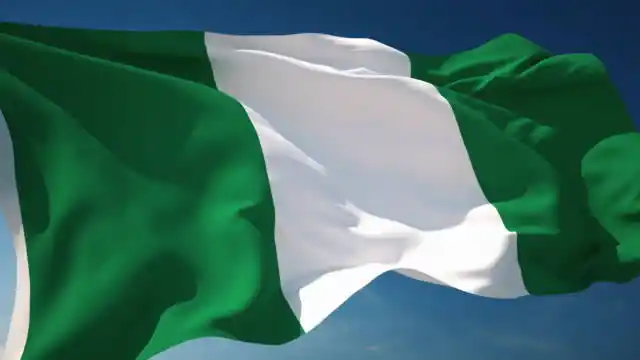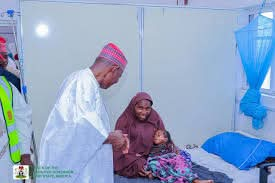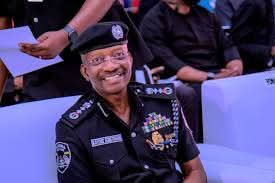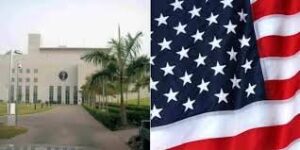Highway Of Political Defections

IfeanyiChukwu Afuba
With the economy wobbling, real income of Nigerians at lowest point from inflationary pressures since the civil war; loan and external debt profile at staggering levels, yet oddly enough, what takes centrestage in the polity is politics and more politics. The Punch editorial of April 7, 2025, echoed an alarm that should have injected sobriety into establishment mood. Referencing the elastic borrowing of the present dispensation, the commentary noted: “While it took eight years for Muhammadu Buhari’s administration to move Nigeria’s debt profile from N42t to N77t, Tinubu has doubled that figure in less than two years.” But because government is still about acquiring power and flaunting it, those in authority are more concerned about retaining power. And so, daily, activities are geared towards dominating the political space. There is no let up in schemes, tactics, time and moves deployed to overwhelm the opposition. Recently, the drama of defections from the ranks of opposition parties to the ruling APC has been unfolding in widening scope. At the last scene, vice presidential candidate of the PDP in the 2023 poll, Ifeanyi Okowa and Delta State Governor, Sheriff Oborevwori, were seen waving goodbye to their PDP comrades. The theatre continues as the media rings the next cast: “2 PDP Governors, 40 lawmakers set to defect to APC.” And church entrepreneurs, with specialisation in predictable, political prophecy, tell us that even more defections are coming.
Do not weep for the PDP. Meaningful concern should be about the elevation of politicking above governance; distaste for “ideological” politics; the phobia for opposition; and the opium of ruling party membership. The PDP itself laid the foundation for this structure of soulless politics. It began with an aversion for new parties at the beginning of the Fourth Republic. For Barnabas Gemade, the party’s national chairman, the refrain was “no new parties now”. Pray, what right had the ruling party pronouncing against the quest of those seeking party registration? Yet, for three years, the PDP blocked this legitimate aspiration. It took a Supreme Court judgement in 2002 to force registration of new political parties. Still unwilling to expand the democratic space in real terms, the PDP
seized opportunity of the 2003 election to asphyxiate opposition political parties. With attempted forgery of the 2001 Electoral Act setting the tone, the electoral coup of the 2003 general elections was predictable. Demonstrating insensitivity and disregard for people’s sensibility, PDP national chairman, Audu Ogbeh canonised it’s rigged victory as product of “hard work.” Standing on that make – believe popularity, the party launched into routine celebration of itself as the “largest political party in Africa!” The psychological intimidation sent many opposition politicians flocking to the PDP. If you would not embrace the party for appointments and contracts, the scare of INEC – conducted elections and state of emergency put a check on opposition strength.
The highway of defections, then, is nothing new. And unless something positively drastic happens to Nigerian government and politics, the sport will survive in the foreseeable future. The trend is a malaise, a measure of political thought, or rather, the absence of it in the system. In an ironic sense, the shuffling and reshuffling of political identities testifies to the bland commonness of the parties. There are no notable differences in their orientation, outlook or mission. The common denominator is the quest for power, office, financial benefits. An astute Nigerian politician is one who knows how to be relevant in the power game. Some actors do not shy away from telling you that politics is about interest. Personal interest! Not about public service, not about development, not about advancing the common good. What is in it for us as individuals, as members of a group? The idea of participating in building a party, erecting political structure, and electing a government, as an investment, is strong and widely shared. Dividends, rewards must rightly follow expended labour. In Anambra State, a small group of former political office holders have sworn to pull down Anambra State Governor, Charles Soludo, for ignoring them. Soludo’s failure to settle them one way or the other after helping to get him elected is viewed as an affront of dismissal. Consequently, they are resolved on “retiring the grammar – blowing professor from politics.” In pursuit of this agenda, they had defected from party to party and from governorship candidates to governorship candidates.
And so, it’s a lot of rhetoric about politics, generally and Nigeria’s in particular. Way back in the mid 1970s, the musician Tony Wilson, sang of the stunts of the politician, describing him as a ‘man of many words.’ Consider the enthusiasm the talkative Minister of FCT embraces political controversy. His long oscillating between the PDP and APC in which he can lay equal claim to both parties at the same time must rank as a feat for the Guiness book of world records. And you begin to wonder after the attendant rabble rousing, what time and energy is left for addressing development issues. Dating back to the independence years, the manifestation of government as the easiest means of personal enrichment in Nigeria, rendered politics a hollow preoccupation. Participation in politics became a career rather than a vocation, a full – time adventure instead of voluntary service. Until recently, successful and morally inclined persons were reluctant to engage seriously in our politics. The social force of commitment was lacking in the public estate. Politics was seen and enjoyed as a game by many of it’s starry – eyed practitioners. The average Nigerian politician matches the description of rice and stew politician. But the duty – spark of the artist in Fela Anikulakpo – Kuti issued a reprimand that what concerned the welfare of the citizen could not be regarded as a game.
For the APC government, it’s both intolerance for opposition and continuing thirst for power. The ruling party does not want to see a strong opposition party standing and had embarked on containment measures against potential threats. Labour Party and PDP were the perceived viable opposition platforms, and which therefore had to be worked on. The leadership tussle in Labour Party, regardless of it’s sometimes internal outlook, is serving to undermine Mr Peter Obi’s preparation for the 2027 presidential contest. Irrespective of how the party’s crisis may have started, despite the public posturing of the contenders, the allegation of the Presidency’s subtle manipulation is to be reckoned with. A close scrutiny of actions of the major players in the tussle reveals occasional instances of Freudian slip. The insight from those moments of unconscious confession reaffirm that the end game is to shrink Obi’s electoral capacity. A similar strategy has been afoot in the PDP. The Minister – Rivers State godfather has done a fantastic job of throwing the PDP in disarray. So depleted and deflated was the party from the instability foisted on her, that in the 2025 Anambra governorship nomination, the once formidable party just managed to secure a lone aspirant for it’s ticket – at the last minute. There are conjectures that the very candidacy may have been stage managed to save face.
For the bulk of the defecting politicians, the catch word remains the necessity of being part of the federal government. The cliche is about to be elevated to a doctrine. Membership of the ruling party qualifies as mainstream politics while activism with opposition or smaller parties is understood as limited political significance. To be out of the mass movement generated by membership of the ruling party is to be irrelevant in the scheme of things. The federal government has the lion share of national revenue; is in control of the military, police and para military agencies. Aside the powerful NNPC Central Bank and EFCC, there are hundreds of extra ministerial opportunities for exploitation. And literally speaking, the patronage list is endless.
As already indicated, the switching of parties goes on easily because the parties are neither policy oriented nor the politicians committed to causes. The APC itself was formed in 2013, in part from politicians who belonged to other political parties at the time. Since then, some politicians have been in and out of the two major parties a couple of times. Exuding confidence of familiarity with the game, Adolphus Wabara, PDP Board of Trustees chairman said his party was not perturbed. Vanguard, April 27, 2025 quoted the former senator: “The PDP will laugh last because very soon, there will be an implosion in the APC. Those people joining the APC will soon want to displace the party members who have built the APC over the years. The APC members will look for where to go, and they will simply come over to the PDP.” In the final analysis, the anonymity of Nigeria’s party politics evokes some comparison with the resolution in George Orwell’s Animal Farm. “Twelve voices were shouting in anger, and they were all alike. No questions, now, what had happened to the faces of the pigs. The creatures outside looked from pig to man, and from man to pig, and from pig to man again; but already it was impossible to say which was which.”






